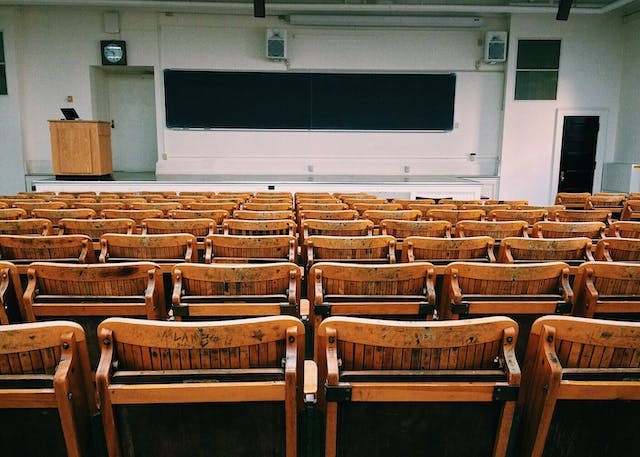
To reshape the admission landscape for law education, an increasing number of law schools are advocating using alternatives to the Law School Admission Test (LSAT). These alternatives are potential tools for diversifying the applicant pools and nurturing a more inclusive environment.
How are Law Schools Diversifying Admissions?
In a recent development, Georgetown University Law Center and Washburn University School of Law have been given the green light by the American Bar Association (ABA) to admit select students without considering the LSAT. In addition to these two institutions, 14 other law schools have been authorized to admit students via the emerging JD-Next program.
JD-Next is an eight-week online course focusing on legal studies, concluding with an examination. This year, 47 of the 197 ABA-accredited US law schools are entitled to use JD-Next for their admission processes.
ALSO READ: Rep. Elise Stefanik Leads Congressional Investigation Into Antisemitism at Harvard, MIT, and UPenn
Is LSAT No Longer Relevant in Admissions?
Since its inception, the LSAT has been a pivotal factor in law school admission. However, the ground realities began to shift when the ABA, in 2022, contemplated eliminating the obligation for law schools to use LSAT for admissions. The move drew controversy as several legal educators feared that this could allow admitting students with less potential to graduate and pass the bar exam.
Despite the ongoing arguments, law schools are exploring alternatives to ensure a diverse and broad-based class, considering the U.S. Supreme Court's recent decision to ban race-conscious admissions.
LSAT alternatives are an effort to breach the barriers that have historically limited some promising law students from entering the race. The LSAT has faced allegations of being a barrier for aspiring minority lawyers, as statistics have shown specific racial disparities in scores.
The Law School Admission Council, responsible for producing the LSAT, stands firm on the view that the LSAT is the most reliable predictor of law school performance.
How are Potential Candidates evaluated?
Georgetown University Law Center plans to admit up to 10 students into its part-time evening program, independent from any standardized test scores. The intense focus will be on applicants' life and work experiences when making admissions decisions. Dean of Admissions Andy Cornblatt has shared doubts about missing potential candidates due to the intimidating experience of taking the LSAT.
Washburn Law's program has set minimum grade-point average criteria for its undergraduate students, following which those who qualify are granted admission. Eligible applicants must still sit for the LSAT, but the scores will not affect admission decisions. According to interim law dean Jeffrey Jackson, this practice should lessen the stress and enable candidates to perform their best in the exam.
A Critical Shift in Law Education?
The shift toward LSAT alternatives is a profound step law schools take to create a more diverse and inclusive environment. Schools initiating these steps, like Boston College Law School, Emory University School of Law, and George Washington University Law School, set a paradigm for others to follow.
Like the law itself, legal education should be accessible to all. Experienced lawyers, cultivated in a diverse environment, can offer diverse perspectives and represent various communities better. Legal help from such experienced lawyers can significantly impact an individual's journey through legal proceedings.
As future legal eagles prepare to spread their wings, ensuring the wind beneath those wings is solid and inclusive is essential. To anyone considering this path, remember the importance of seeking experienced legal help from a qualified lawyer to navigate your legal journey effectively.
So, are you ready to make a difference? Take the next step today.




